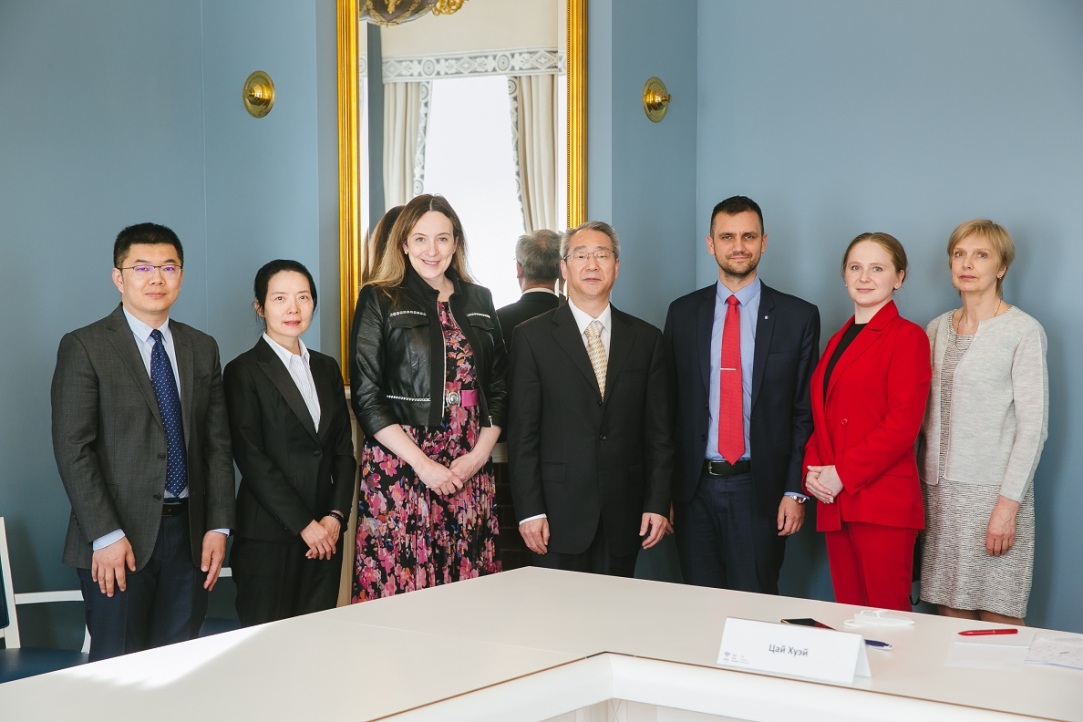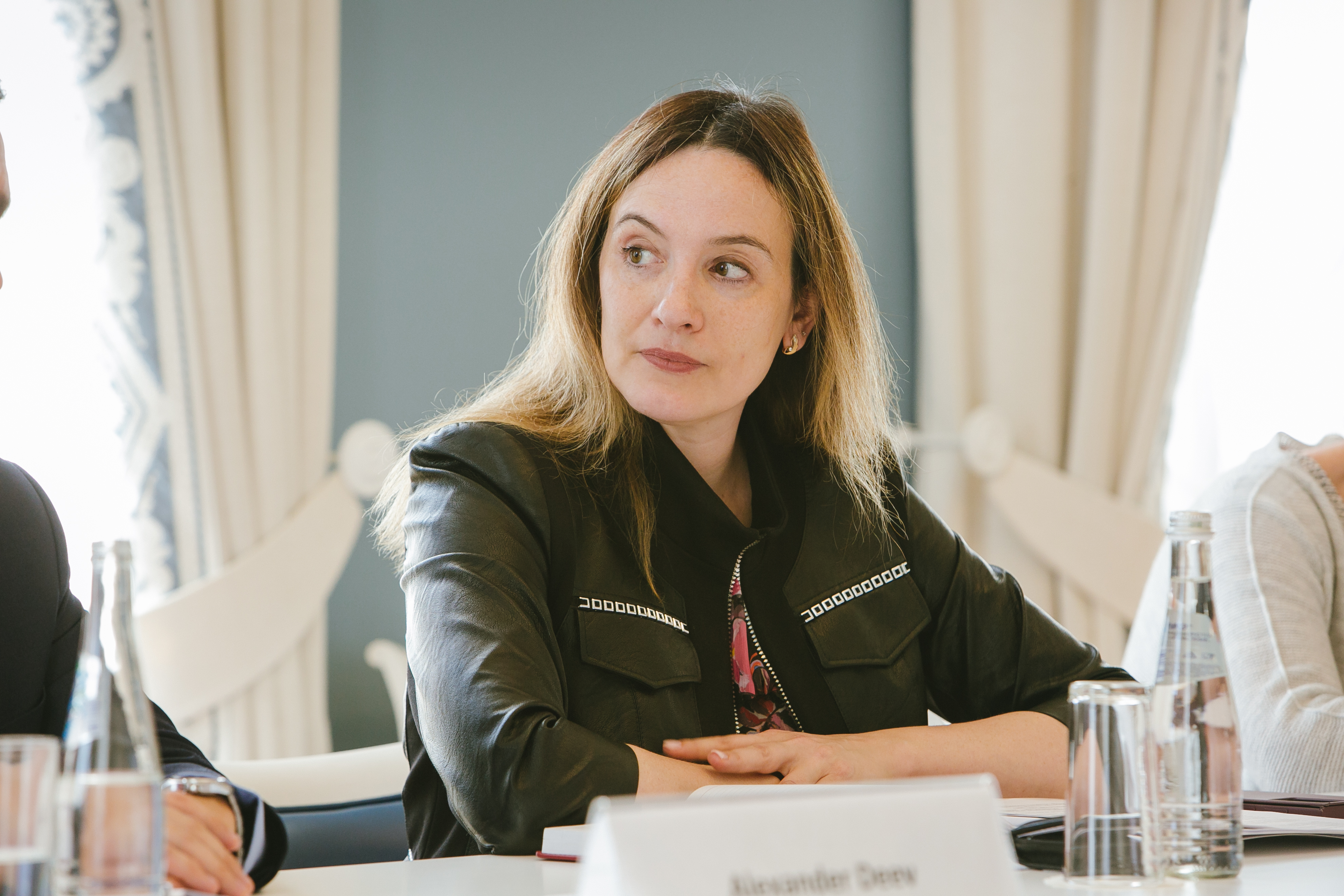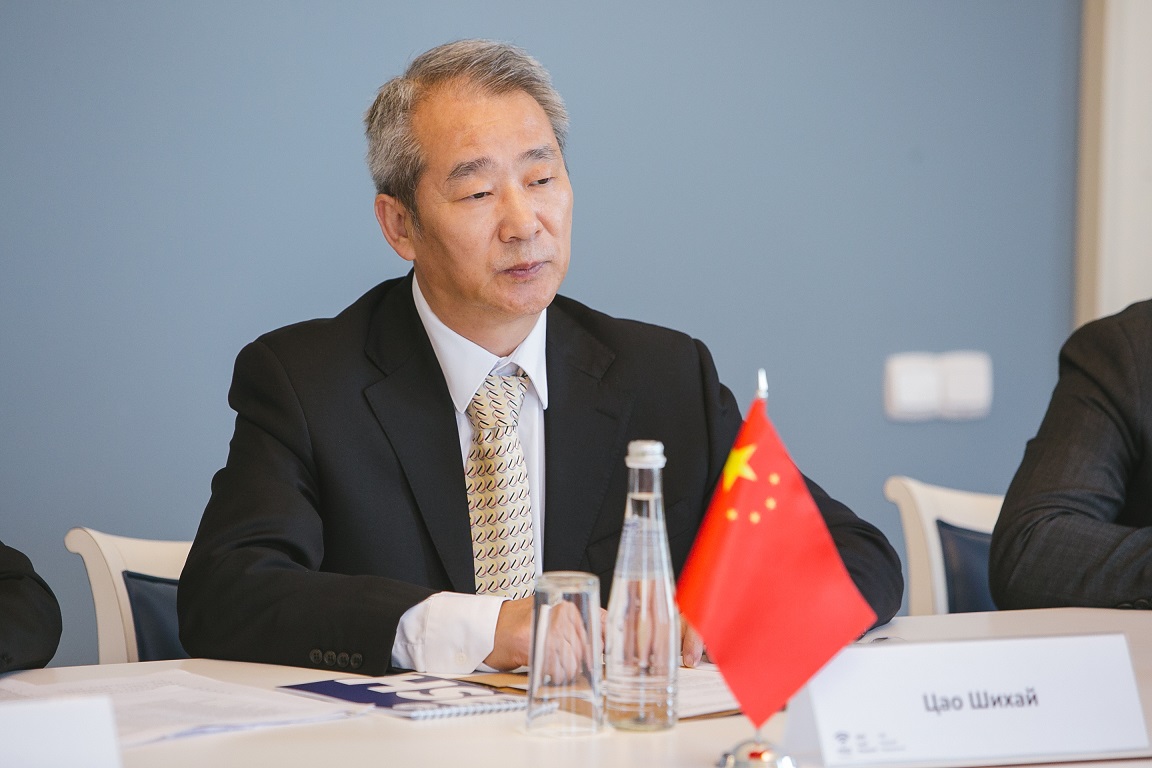HSE University Expands Cooperation with China

HSE University plans to significantly expand its cooperation with Chinese universities and schools, creating new cooperation programmes and developing existing ones. This includes plans to attract potential candidates to take part in HSE University olympiads, increase the number of Chinese students at the university, and create joint educational programmes.
A meeting between the university administration and a delegation of the Chinese embassy in Russia took place in the Pokrovka building at HSE University-Moscow. Opening the meeting, HSE University Vice Rector Victoria Panova noted the importance of establishing ties between universities and research institutes in the two countries. She stressed that HSE is one of the leading universities in Russia: in recent years, it has managed to increase its representation in international subject rankings to almost 50. HSE actively cooperates with Chinese universities, having signed 35 agreements with 23 universities, including Peking University, Tsinghua University, and the Harbin Institute of Technology. The university has 13 joint projects in fundamental research with Chinese institutions, and 214 Chinese students study at HSE.

Despite all of this, Victoria Panova is confident that there is further potential for cooperation between HSE and Chinese universities. ‘We are open to discussing options for expanding cooperation and deepening ties between educational and research institutions in our two countries,’ summarised the vice rector.
Cao Shihai, Minister Counsellor and Head of the Department of Educational Affairs of the Embassy of the People's Republic of China to the Russian Federation, expressed his gratitude to HSE University for providing assistance to Chinese students during the pandemic and noted that the university is popular in China. The diplomat emphasised that China pays special attention to cooperation in the field of education. According to the minister counsellor, more than 3,000 agreements have been signed between the two countries and 13 Russian-Chinese university associations have been created. In recent years, 116 joint educational institutions and projects have been organised.

Cao Shihai said that HSE is a young university that has achieved great results. ‘We will be very happy to facilitate cooperation between HSE University and Chinese partners,’ he said.
He also noted the growth in mutual interest in language studies. Around 120,000 school and university students in China study Russian, while roughly 113,000 Russian students study Chinese. Cao Shihai highlighted the ongoing expansion of Chinese-language teaching at HSE University and expressed his willingness to expand cooperation in studies of the language.
Victoria Panova stressed the importance of expanding joint programmes with leading Chinese universities such as Peking University and Tsinghua University.
HSE University is interested in joint master’s programmes in socioeconomics, the humanities, and the natural sciences. Victoria Panova told the Chinese delegation about the university’s global leadership in a range of fields: the HSE University programming team consistently wins prize places in international olympiads, while HSE MIEM trains outstanding engineers, mathematicians, and electronics specialists. The university also has strong biology, neurobiology, cognitive and neuroscience, geography, and physics faculties.
The vice rector also proposed an initiative to prepare joint Russian-Chinese research periodicals.
Victoria Panova highlighted HSE University’s readiness to develop the teaching of Russian language in Chinese universities, facilitating academic exchanges with universities with strong Russian-language departments, and offering assistance to universities that would like to improve their Russian-language competencies. She also proposed inviting teachers from China to teach Chinese.
Another likely area of cooperation between HSE and Chinese universities is the MBA course. Victoria Panova noted that the course can be taken in both Chinese and English.
The vice rector also invited Chinese students to take part in university’s annual summer schools. In light of this, it is important that information about the university is widely disseminated in China. ‘This would be good and useful for both parties. We are happy to admit Chinese school students to study at our university,’ she said. She also proposed holding joint Russian-language olympiads in China in order to objectively assess the knowledge of Chinese school students.
Victoria Panova highlighted that Chinese social media is an important element of communicating with students and applicants—one which could replace Western equivalents in this turbulent period. Alexander Deev, Director of International Admissions at HSE University, added that the embassy’s help is vital in promoting HSE’s social media pages and making them better known to potential applicants.
According to Cao Shihai, the education of doctoral students at Russian universities is a priority area for China. He proposed expanding the education of Chinese doctoral students at HSE University in various subjects and appealing to more Chinese students and candidates to take part in the university’s olympiads. ‘We should maintain ties in order to learn about such events in time and tell Chinese students about them,’ he said. He also supported the idea of launching joint Russian-Chinese research publications.
‘We hope that prestigious and strong fields for Chinese students will be more open at Russian universities, and likewise for Russian students in China. This will allow us to jointly train sought-after, highly qualified specialists in various fields of science and research,’ he explained.
The Chinese diplomats thanked HSE University for the initiatives proposed and suggested a joint cooperation project of their own: organising summer camps in Russia and China for students from each other’s countries.
The parties also discussed the idea of conducting a joint conference between HSE and leading Chinese universities on priority scientific areas. Victoria Panova believes that this will help to find new areas of cooperation and contact, as well as organise new bilateral projects.
After the meeting, the Chinese delegation was given a tour of one of the buildings of the HSE University campus on Pokrovsky Bulvar: the Durasov House, which is a cultural heritage site.
See also:
‘High Grades Open Up Many Opportunities for You Here’
Bai Xinyi, 24, comes from Ankang, a small city in China. She is pursuing a master’s degree in Economics and Economic Policy, with a focus on Behavioural Economics, in the HSE Faculty of Economic Sciences. Below, she speaks about the application process, shares some details of her favourite courses, and reminisces about talking to friendly passers-by in the streets of Moscow.
‘If You Can Show that You Are Willing to Speak Russian, People Are So Friendly’
Jiayi Xu is a first-year student of the Master’s in Comparative Social Research at HSE University in Moscow. Having now spent five months living and studying in Moscow, Jiayi shares her thoughts about life in Moscow so far, her love of visiting the library, and the differences between education in China, the US, and Russia.
‘Winter in Russia is a Season of Romance and Cold, Solemnity and Vitality’
Over 450 international students from all over the globe currently study at the HSE Faculty of Economic Sciences. Some of them have recorded video greetings, talked about celebrations in their home countries, and shared their ideas on how to spend the winter holidays in Russia.
‘We and Our Chinese Colleagues Have a Common Approach to Solving Modern Challenges’
During a visit to China, an HSE University delegation headed by Vice Rector Victoria Panova arranged to extend cooperation agreements with Fudan University and East China Normal University (ECNU). Particular attention was paid to expanding students’ and teachers’ academic mobility between universities.
HSE Holds Table Tennis Championship among International Students
Mixed-sex teams representing eight university faculties took part in the HSE Winter Tennis Cup, an interfaculty table tennis championship for international students. The team of the Faculty of Mathematics won the competition. The tournament was organised with the support of the Department of Internationalisation and the Department of Physical Training.
'It Is Crucial for HSE University to Strengthen the Positions of Russian Education and Science'
Delegations from Nanjing University and Renmin (People's) University of China have recently made their first visits to HSE University to explore potential areas of cooperation. The Chinese universities have expressed interest in initiating collaborative research projects, educational and academic mobility programmes.
Enhancing Cooperation between the Countries: East China Normal University Delegation Visits HSE
The delegation of the East China Normal University has visited HSE University’s Moscow campus. The representatives of both academic institutions confirmed their mutual interest in developing cooperation. The East China Normal University was the first Chinese institution to cooperate with HSE University. This partnership has been developing for quite a while, with the first memorandum signed on June 30, 2011, followed by two agreements on student mobility.
The China Puzzle: Building Business with the Celestial Empire
Cooperation with Chinese partners in all spheres of the economy is reaching a new qualitative level. At the same time, Russian entrepreneurs often lack knowledge about the specifics of doing business with China. Ways to solve this problem and strengthen the bilateral partnership were discussed at the ‘Russia—China: Business in a Multipolar World’ forum held at HSE University.
HSE University to Host First ‘Russia—China: Business in a Multipolar World’ International Forum
Experts from Russia and China will discuss new challenges and opportunities for business cooperation between the two countries, including those using advanced digital technologies. The event will take place on September 28 at the HSE building on Pokrovsky Bulvar. The forum is expected to be held annually.
‘The Graduation Ceremony Was the First Time We Saw Each Other’: 2023 MASNA Graduates Celebrate in Person
On July 3, the HSE University building on Pokrovka hosted the graduation ceremony of the Master’s in Applied Statistics with Network Analysis (MASNA). The programme, which trains students to use modern approaches in data and network analysis, is taught fully online in English. We spoke to Jiaxuan Wang, Sergio Camposortega, and Iris Cilenšek, three international students who came to Moscow for the graduation ceremony. The recent graduates shared their thoughts about the online format and finally meeting their classmates in person.


